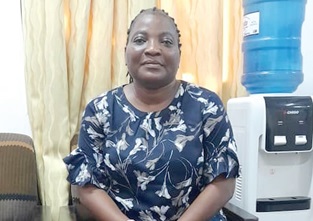
Low participation of women in politics worrying — Gender Specialist
A Social Development and Gender Specialist/ Consultant, Dr Miriam Rahinatu Iddrisu, has described as worrying statistics indicating a decline in women’s participation in politics in the country.
Advertisement
She said the statistics did not tally with Ghana’s credentials as a mature and stable democratic country with a well-functioning multi-party system and a strong broadcast media.
She said it was also a signal that the country was not doing well in connection with achieving the Sustainable Development Goal Five on gender equality.
Dr Iddrisu made this known in an interview with the Daily Graphic in Accra last Monday.
Quoting statistics, Dr Iddrisu said compared to other countries, participation of women in Ghana’s Parliament was very low, adding that Ghana ranked 141 in that regard while Rwanda remained in a class of its own with 67.5 per cent of its Members of Parliament (MPs) being women.
South Africa, she said, had 44.5 per cent; Mozambique, 39.2 per cent; Uganda, 34.9 per cent; Burkina Faso, 15.3 per cent, and Niger, 13.3 per cent.
She said sadly, Ghana had only 40 women in the eighth Parliament of the Fourth Republic, 20 each across the National Democratic Congress and the New Patriotic Party, and that represented 13.8 per cent.
Female Parliamentarians
Giving the journey of Ghana’s female representation in Parliament, Dr Iddrisu said in 1996 when Ghana’s parliamentary seats were 200, 53 females contested for Parliament and 18 won.
In 2000, when Ghana still had 200 parliamentary seats, 95 females contested and 19 won.
“In 2004, we increased our parliamentary seats to 230, 104 females contested and 25 were successful.
In 2008, Parliament remained 230 seats, 103 women contested, and it decreased to 20 who won the seats.
In 2012, of the 275 parliamentary seats with 133 women participating, it increased to 30 women in Parliament.
In 2016, of the 275 seats, women contestants increased to 139 and we had 36 winning the seats.
In 2020, of the 275 seats, contestants reduced from 137 to 126 but 40 won,” she said.
For female ministers, Dr Iddrisu said in 2000, when the number of state ministers were 32, four were females and the males were 28 while for 2020 of the 30 ministers, six were females and 24 males.
Reasons for low representation
Dr Iddrisu mentioned the reasons for the low representation of women in district and local level elections to include financial barriers, outmoded traditional/cultural and religious definition of a leader being a male that we still held on to and the kind of politics going on in the country now, which was so messy that most women with families did not want to get themselves involved.
On what to do to get more women in the decision-making process, she suggested the passage of the Affirmative Action Bill into law, adding that, it would facilitate the 40 per cent representation of women in decision-making.
She also suggested the need for women to rally behind one another; male engagement and support for women at all levels, especially in politics; for the MOGCSP and relevant civil society organisations to be resourced to actively engage effectively in monitoring and advocacy to assure accountable governance; removal of traditional and cultural barriers that inhibit women’s political participation through constitutional and legislation reforms and the intensification of education and training for women and girls.



